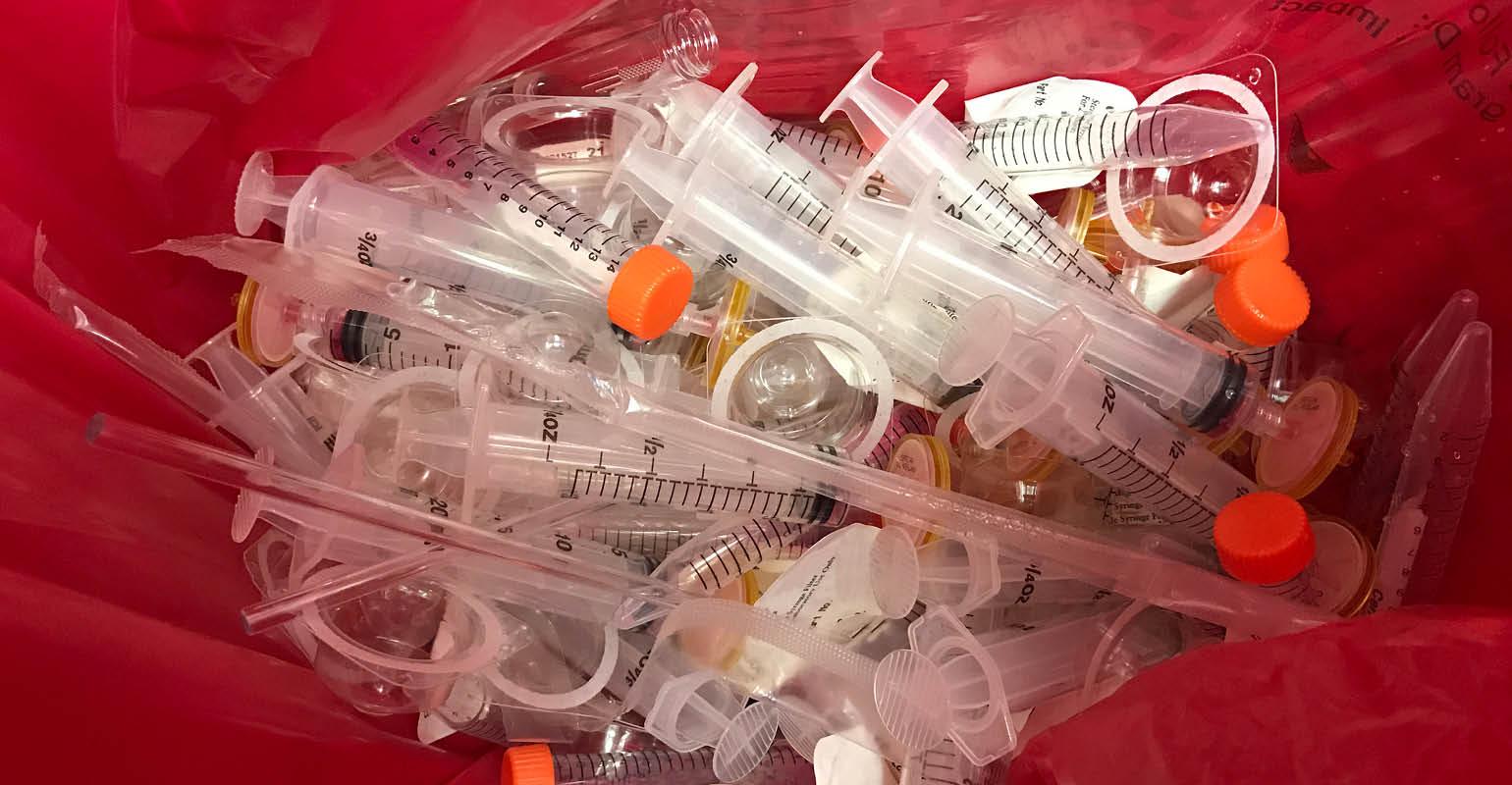Guardians of Tidiness: Citizen Medical Waste Removal Service for Your Satisfaction
Guardians of Tidiness: Citizen Medical Waste Removal Service for Your Satisfaction
Blog Article
Remain Ahead of Rules: Expert Guidance on Medical Waste Disposal
In a globe where the medical care industry is continuously progressing, it is imperative for medical facilities to stay ahead of policies when it pertains to the correct disposal of clinical waste. With rigorous standards and constant governing changes, it can be challenging to navigate the intricacies of this procedure. However, with expert advice, facilities can guarantee compliance and mitigate risks connected with improper waste disposal. From understanding the different groups of clinical waste to carrying out the ideal collection and segregation methods, this conversation will certainly supply workable suggestions and valuable understandings to aid facilities stay in advance of guidelines in the ever-changing landscape of medical garbage disposal.
Comprehending Medical Waste Categories
Comprehending clinical waste classifications is essential for correct disposal and management in health care facilities. Medical waste describes any waste produced by healthcare activities that might pose a danger to public wellness or the atmosphere. It is critical to categorize medical waste properly to ensure its safe handling, treatment, disposal, and transport.
There are numerous categories of medical waste that health care centers need to be familiar with. The most typical groups include infectious waste, pathological waste, sharps waste, pharmaceutical waste, and chemical waste. Each classification has certain standards and regulations for its proper administration and disposal.
Contagious waste consists of products infected with blood or various other physical fluids, such as gloves, gowns, and laboratory cultures. Pathological waste refers to human tissues, organs, or body parts that need unique handling and disposal. Sharps waste consists of utilized needles, syringes, and various other sharp items that can cause injury and transmit infections. Drug waste comprises ended, extra, or infected drugs that need careful handling and disposal. Chemical waste consists of solvents, anti-bacterials, and various other chemical compounds utilized in health care facilities.
Staying Up-To-Date With Regulatory Adjustments
Remaining present with regulative changes is essential for healthcare centers to make certain conformity and appropriate management of clinical garbage disposal. medical waste removal. With regulations frequently progressing, it is vital for health care centers to remain up-to-date to stay clear of charges, fines, and possible damage to the environment and public wellness
To stay in advance of regulative changes, medical care facilities need to establish a system for monitoring and monitoring updates. This can be done by subscribing to governing newsletters, participating in seminars and workshops, and proactively participating in sector associations. Furthermore, facilities must designate a personnel or group responsible for staying educated and disseminating details to relevant stakeholders.
Routine interaction with regulative firms is also important. Healthcare facilities ought to establish relationships with regional, state, and government agencies to ensure they recognize any type of adjustments in regulations that may influence their waste management techniques. This can be done via regular meetings, participation in public comment durations, and proactive engagement with regulative firms.
Additionally, medical care facilities need to think about partnering with waste management business that specialize in medical garbage disposal (medical waste disposal services with WasteX). These companies are commonly fluent in the most up to date policies and can supply advice and assistance to ensure compliance
Executing Appropriate Collection and Partition Approaches
To properly take care of clinical garbage disposal, medical care centers must establish proper collection and partition approaches in conformity with governing standards. Applying these approaches makes certain the secure handling and disposal of possibly harmful products, safeguards the atmosphere, and reduces the risk of infections and injuries to healthcare employees and the public.
Correct collection and partition techniques involve the use of marked containers and classifying systems. Health care facilities ought to provide plainly classified containers for different kinds of clinical waste, such as sharps, transmittable waste, pharmaceutical waste, and non-hazardous waste. These containers must be color-coded and clearly significant to stay clear of confusion and promote very easy identification.
Additionally, medical care centers ought to train their team on the right procedures for gathering and segregating clinical waste. This consists of educating them on the various sorts of waste, the appropriate containers to make use of, and the value of following regulations and guidelines. Normal training sessions and correspondence course must be conducted to make certain that personnel stay up-to-date on finest practices.
In addition, healthcare centers should develop a system for regular collection and disposal of clinical waste. This might include partnering with qualified waste administration firms that specialize in clinical waste disposal. see These business will certainly guarantee that the gathered waste is transported and taken care of in compliance with regulative needs.
Choosing the Right Disposal Techniques

Incineration is among one of the most reliable and usual approaches for disposing of certain types of medical waste, such as pathological waste and sharps. It involves the controlled combustion of waste at high temperatures, reducing it to ash. Incineration can release unsafe toxins into the air and add to air pollution.

Chemical therapy entails the usage of chemicals to neutralize the waste and disinfect. Microwave treatment uses microwave energy to heat and sanitize the waste.
Making Sure Conformity With Paperwork and Training
After very carefully thinking about Get More Information the proper disposal techniques for clinical waste, healthcare facilities have to ensure conformity with laws and decrease ecological influence by pop over to this web-site carrying out efficient paperwork and training procedures. This step is crucial in maintaining a secure and lasting environment for both medical care employees and the general public.

Health care employees who deal with medical waste ought to get proper training on waste segregation, managing, and disposal procedures. By supplying detailed training, health care facilities can empower their staff to make informed choices and decrease the threat of incorrect waste disposal.
Final Thought
In final thought, staying ahead of regulations in clinical garbage disposal is vital for health care facilities. medical waste removal services. Comprehending the different groups of clinical waste, staying updated with governing modifications, executing proper collection and partition techniques, choosing the appropriate disposal approaches, and making sure compliance via paperwork and training are all vital steps. By adhering to these guidelines, healthcare companies can efficiently manage and get rid of of medical waste in a secure and accountable manner
From recognizing the different groups of medical waste to applying the ideal collection and partition techniques, this conversation will provide useful insights and actionable tips to help centers stay ahead of laws in the ever-changing landscape of medical waste disposal. - medical waste disposal services with WasteX
The most usual groups consist of infectious waste, pathological waste, sharps waste, pharmaceutical waste, and chemical waste. Healthcare facilities ought to offer clearly identified containers for various kinds of clinical waste, such as sharps, contagious waste, pharmaceutical waste, and non-hazardous waste. Health care centers must establish an extensive system to tape and track all elements of medical waste disposal, including types of waste generated, quantities, and disposal methods used. Healthcare workers that take care of clinical waste should receive appropriate training on waste partition, taking care of, and disposal treatments.
Report this page